Peter Keum
WTD GIS Senior Specialist
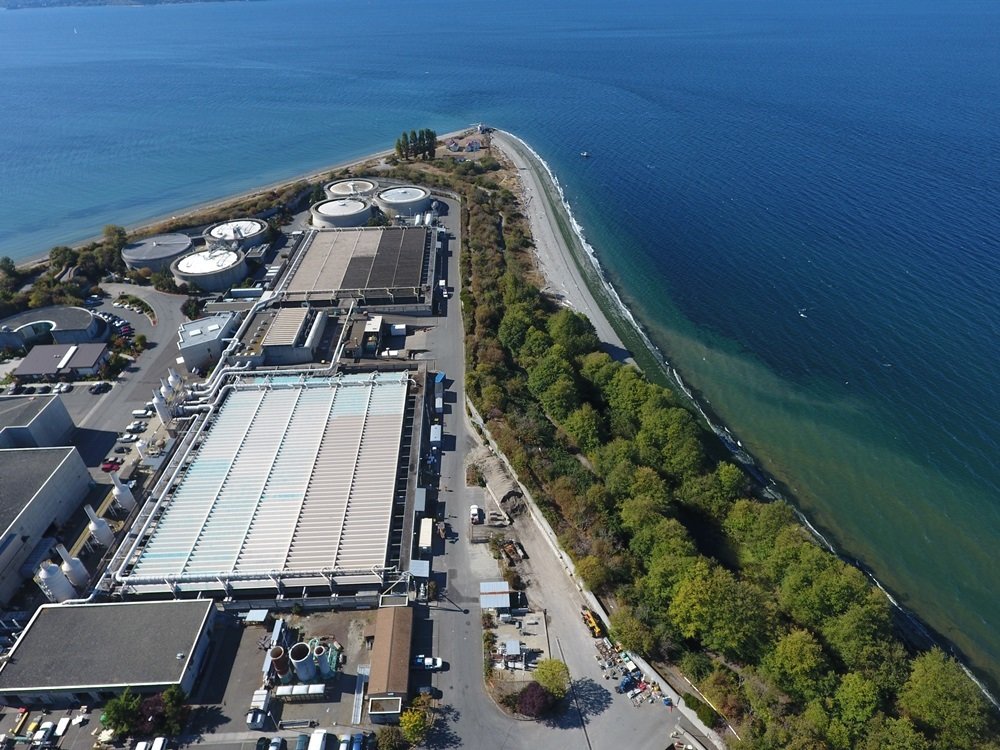
Use of RPAS* for Wastewater Treatment Division
October 27th, 2021
FAA Part 107 Certified Remote Pilot
Remotely Piloted Aircraft System
- Drone - What is it? How we use it?
- WTD RPAS Pilot Program
- WTD Project Workflow

It's just a toy...

2016



It's just a toy...past examples of what used to be



It's just a toy...



So Where is it going...
-
Increase in Enterprise use of Drone
-
Using it because it does job better
-
-
Successful technology is not thrill but becomes essential and accepted
WTD Projects
-
West Point Treatment Plant Incident Feb, 2017

Seattle Times Headline
March 12, 2017
WTD Projects
-
West Point Treatment Plant Incident Feb, 2017
Drone Flights (March, 2017) - Soil Run-off Real cause of plume, not overflow


WTD Projects
-
Mitigation & Monitoring Group - 36 flights since 2017
-
Denny Regulator Station Erosion Project - 3D Model



WTD Projects
-
West Point TP & Brightwater TP
July & August 2021 - Panoramic View


Few ways to Enhance Communication using Drone Data
-
Better Story Telling Tools for Private & Public Meetings
-
Communicate Traffic Flow Changes, Park Closures, or Construction Work
-
Improve Website and Social Media Contents
- Instagram or Tweets to generate interest of parks
-
Ensures Accuracy with Clear/Readable Images
UAV - Unmanned Aerial Vehicle
FAA Definition: Unmanned Aircraft (UA) system that is operated by a pilot via ground control or on-board computer.


Background Information
UAV Categories

Small - $
- Size: 1 - 2 meters ( 3 ft - 6.5 ft), < 55 lbs.
- Control: Radio control
Medium
- Size: Equivalent to a car, ~ 1000 lbs.
- Control: Visual Line Of Sight (VLOS) & Beyond LOS, RC & Satellite ~ $$$
Large
- Size: > 30,000 lbs.
- Control: Visual Line Of Sight (VLOS) & Beyond LOS, RC & Satellite ~ $$$$



1. Aircraft + Sensor (Data Collection)
2. Data Processing & Analyzing (GIS)
3. Information Products
=
+



Information Products
UAV as Platform

Multi-rotors
Fixed-wing & VTOL

- Shorter flight time (< 30 min)
- Cover smaller area
- Highly maneuverable
- Less expensive
- Access to confined spaces
- Long flight time (+ 40min)
- Covers large area
- Larger selection of sensors

(vertical take-off & land)
Multi-rotors
- Shorter flight time (< 30 min)
- Cover smaller area
- Highly maneuverable
- Less expensive
- Access to confined spaces

Sensors Payload


Multi-spectral
Thermal Infrared

Lidar Camera

High resolution digital camera (100 MP)

Lidar Camera
Lidar Camera
Methane Gas Dector
Sensors Payload
High resolution digital camera



credit: Esri
FAA Regulations - Where are we now?

Regulations
Commercial/Governmental
FAA Part 107 Rule, July 2016
-
Need FAA Remote Pilot Certification (Pilot license NOT needed)
-
171,744 - Remote pilot certified (2020)
-
441,709 - Commerical Drones Registered
-
Fly under 400 feet above ground level
-
Not to fly < 5 nautical miles around airport
-
Aircraft < 55 lbs.
-
Fly during daytime or night time operation with appropriate lighting
-
Fly visual line of sight ( VLOS)
-
No flight over non-participating people
FAA Part 107 Rule
King County WTD
August, 2016 - WTD Policies on Use of Small Unmanned Aircraft Systems (Drones) - Email to Managers/Supervisors:
Approved of using 3rd party drone operator
April, 2021 - "A drone can be used at any WTD facility; however, staff wanting to use a drone must work with Peter Keum to ensure that the proposed use meets the FAA and local regulations because the regulations vary geographically.... permissible to operate drones indoor or in confined spaces for specialized uses, like inspections."
King County WTD
June, 2016 - Approved to Started RPAS Pilot Program
- Three FAA Part 107 Drone Certified Pilots - WTD GIS Specialists
- 3 Drones: DJI Mavic 2 Pro, DJI FPV (Confined space) Drone, DJI Mavic 2 Enterprise Advance
- Since June, flown over ten missions to support Capital and Asset Management Program and Mitigation & Monitoring Program


Two Spaces for Drone
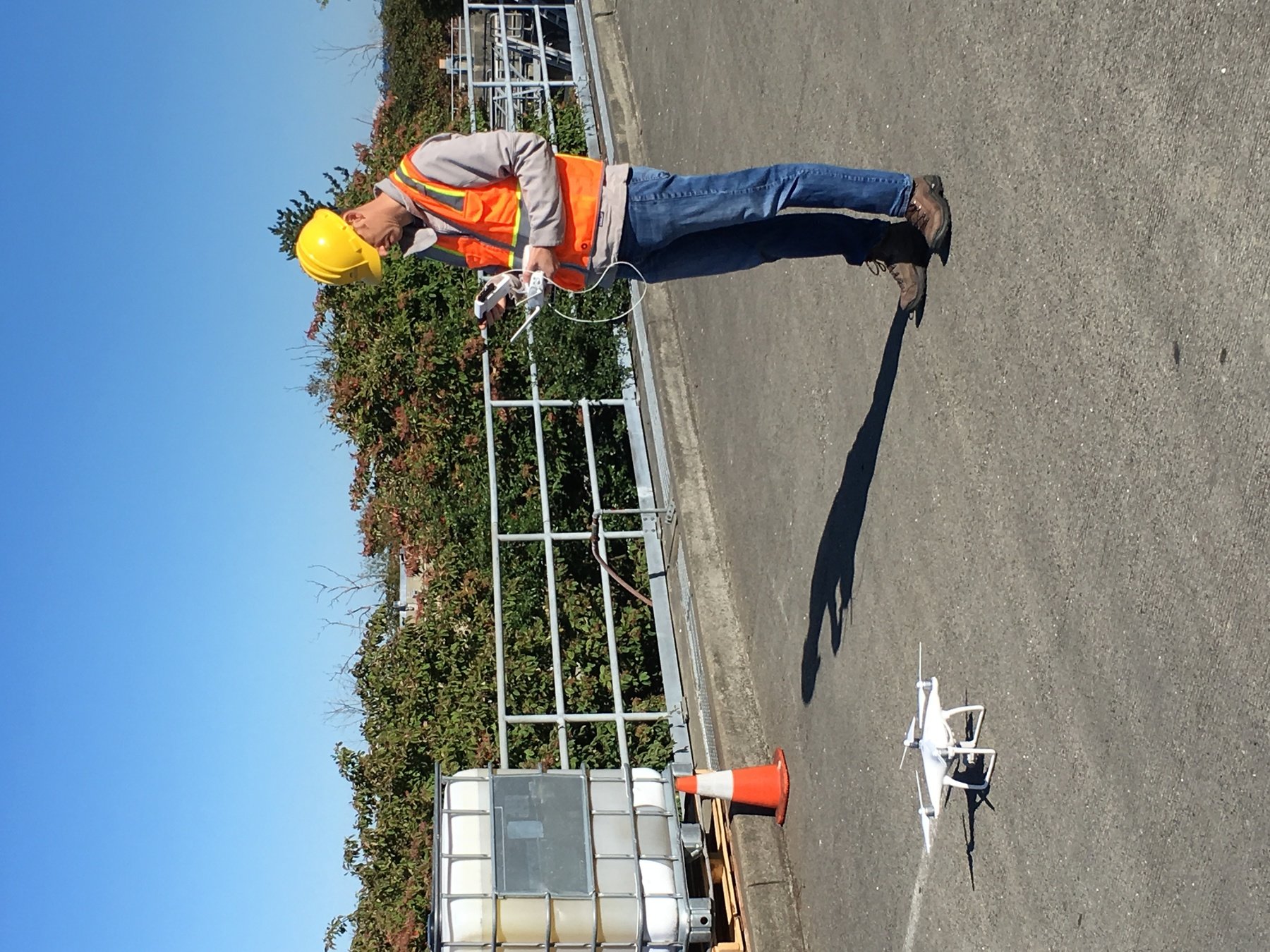



Outdoor
- GPS Signal
- Automated Planning and Flight
- Even, Diffuse lighting
- Open space
Indoor
- No GPS signal
- Limits on speed and motion
- Manual flight control
- Tight spaces
Outdoor
Indoor


DJI Air & Mavic 2 Pro < $1800
Aertos 120 $25,000 +
Eilos 2 $48,000 +
DJI Matrice 300 $12,000 +



Why Use Drones?
-
Increase Safety for Staff
-
Avoid hazardous condition
-
Precision Data Collection
-
Repeatable & Recordable & Searchable
- Enabling Temporal/Spatial trend analyses
-
Higher Efficiency of Data Collection improves product development & analytical capabilities
Avoid Hazardous Condition
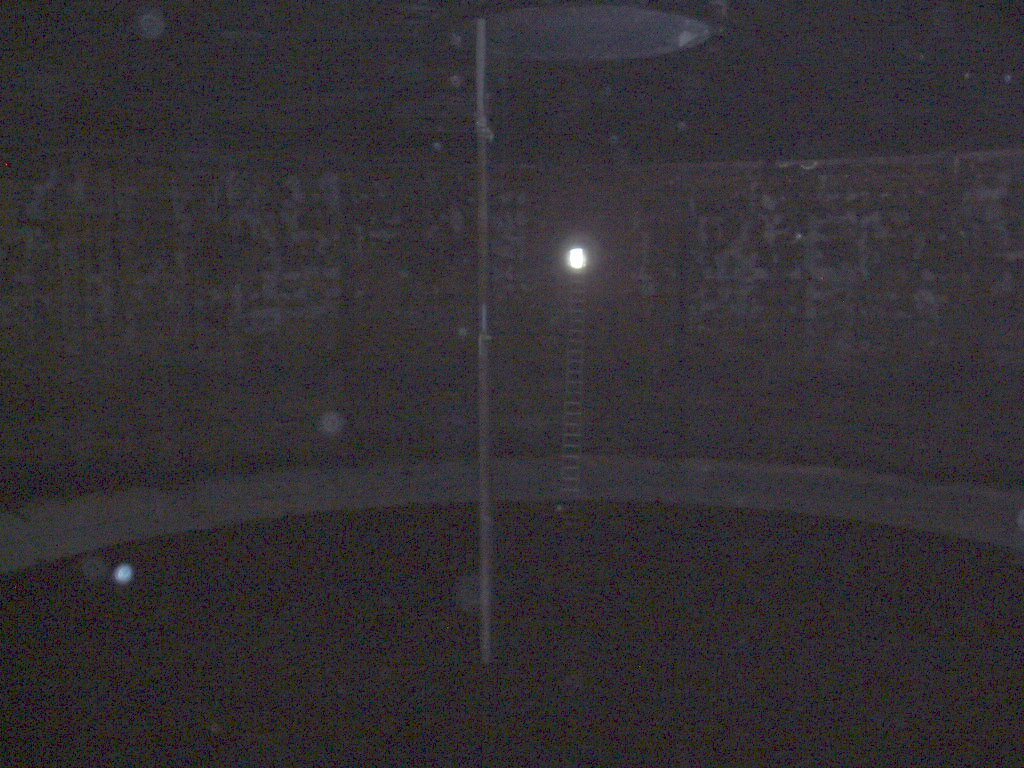
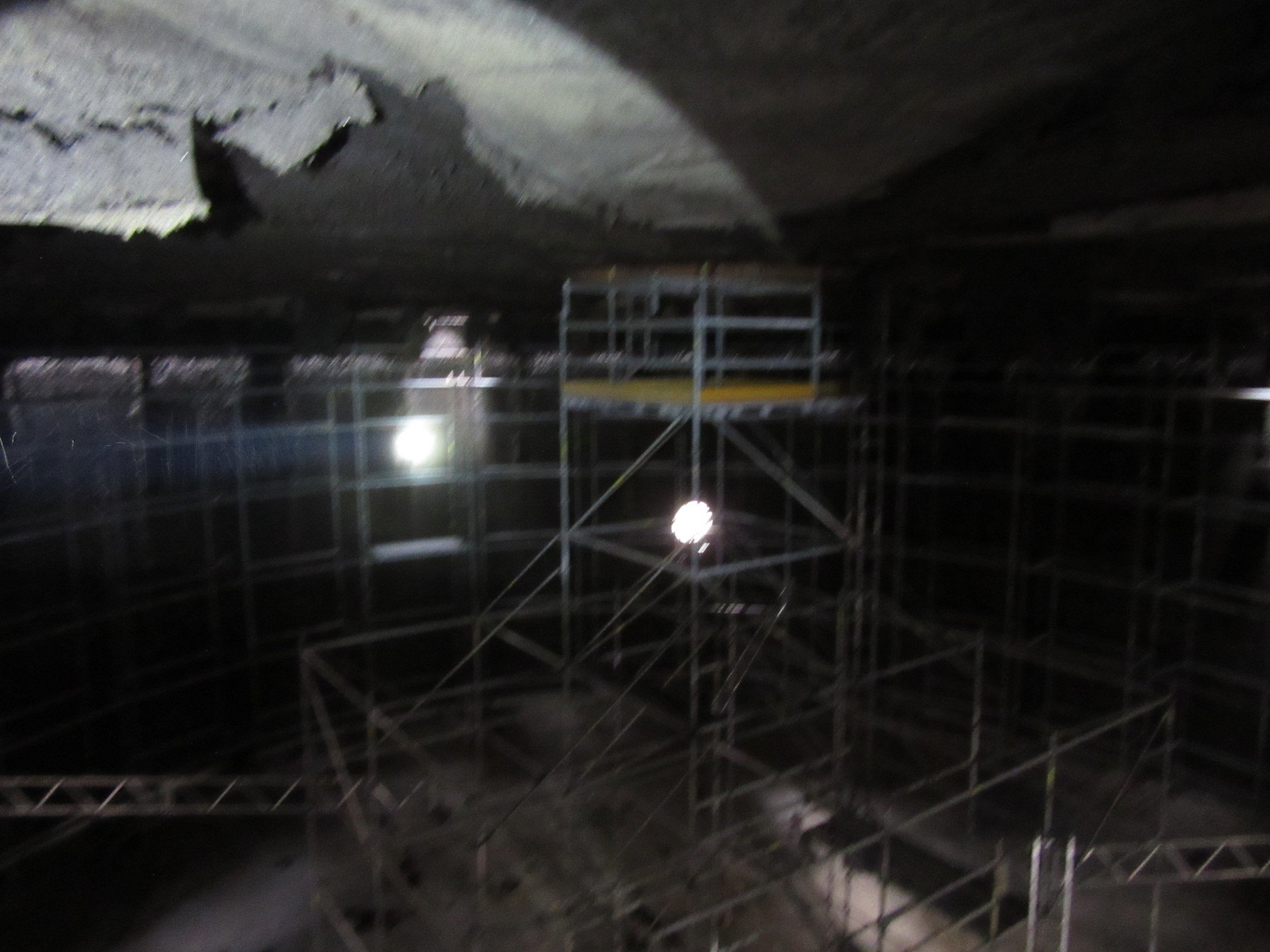


West Point TP - Digester
Better Precision Data
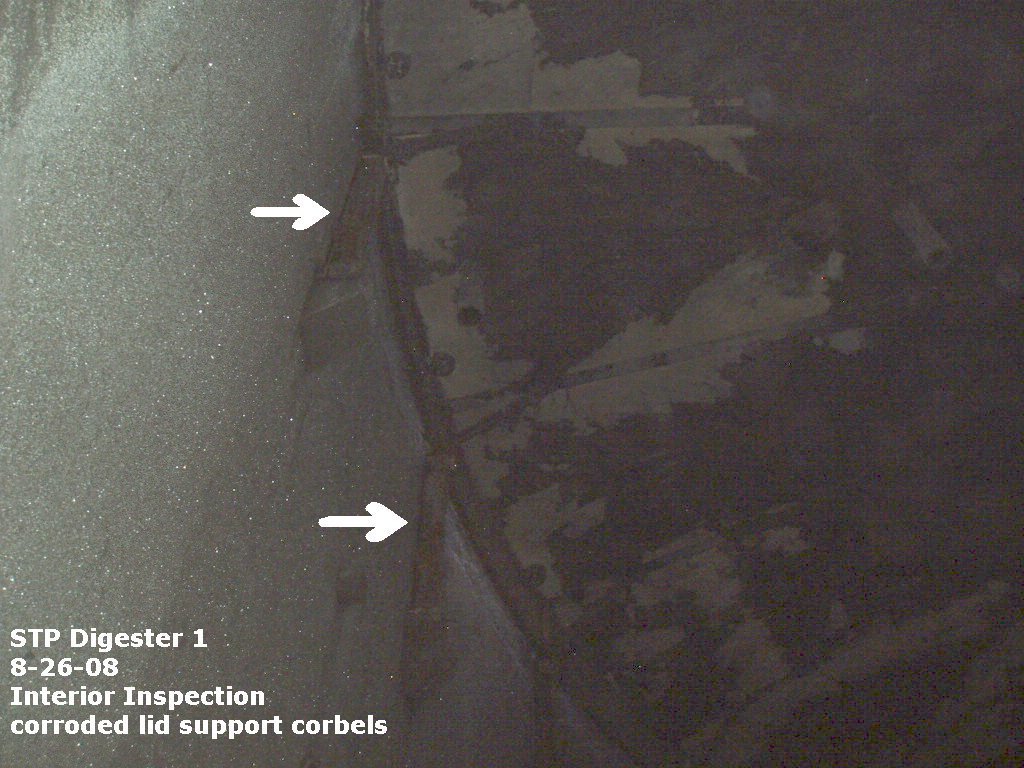


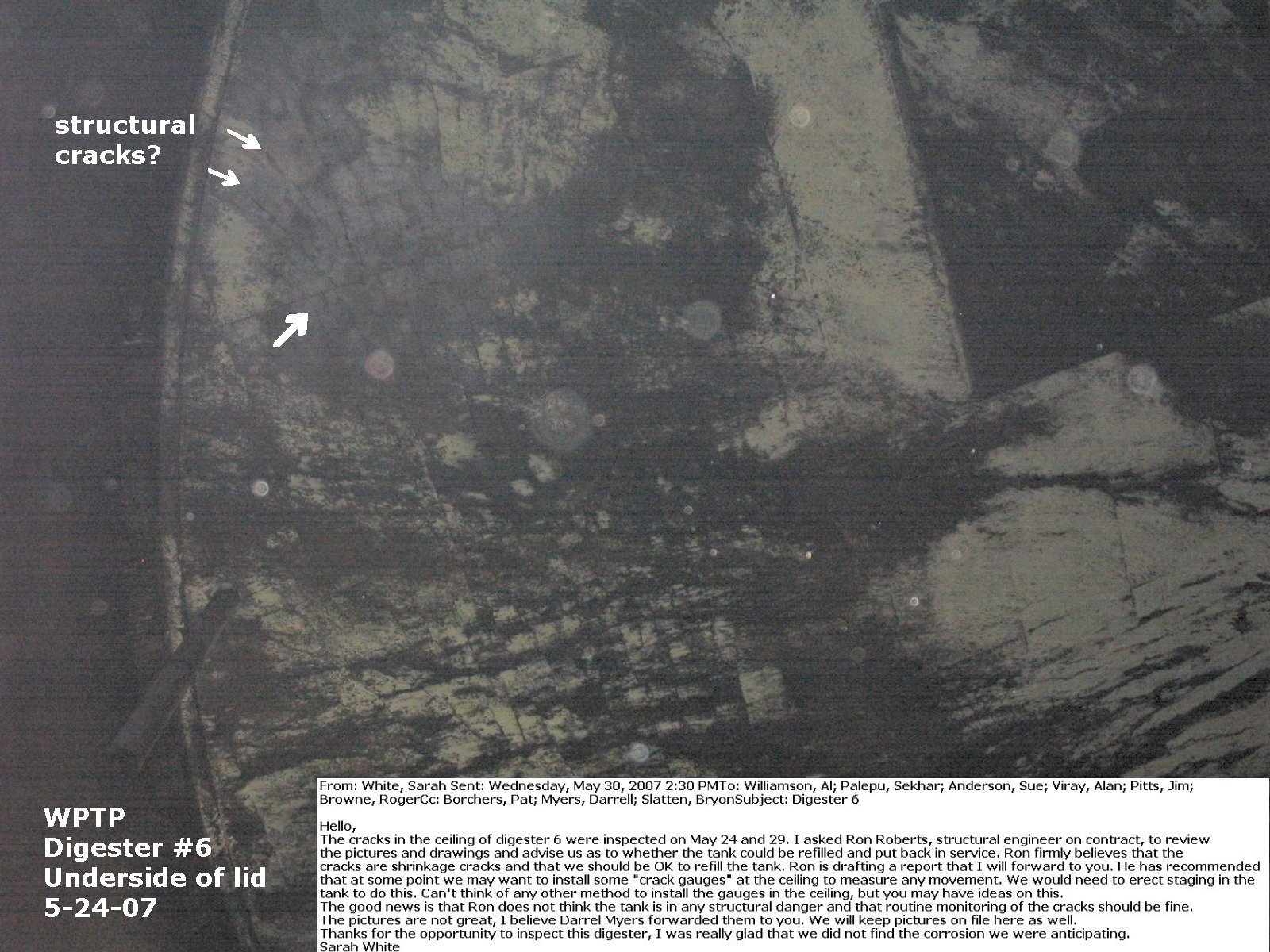




Standard Drone Workflow

WTD PM Workflow


Memo Template

Simple Payment Template


GIS Products


Many ways to Enhance Communication using Drone Data
-
Better Story Telling Tools for Private & Public Meetings
-
Communicate Traffic Flow Changes, Park Closures, or Construction Work
-
Improve Website and Social Media Contents
- Instagram or Tweets to generate interest of parks
-
Ensures Accuracy with Clear/Readable Images
Drones, What are they Good for?
peter.keum@kingcounty.gov
Just another tool in the toolbox


Let's Go Find Solution
Questions?

WTD RPAS Program Presentation for DNRP Communication Group - 9/23/21
By Peter Keum
WTD RPAS Program Presentation for DNRP Communication Group - 9/23/21
Modified WTD Drone Presentation from PM with more general information for WTD in-house staff Lunch & Learn
- 1,063



